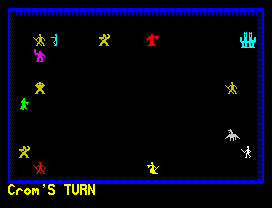
First, the good (great, in fact) news: Julian Gollop, author of Chaos, Laser Squad, and the original X-COM: UFO Defense (known in Europe as UFO: Enemy Unknown; note that the recent Firaxis remake combines the two names) has announced that he’s remaking Chaos, and his ideas so far (the previous link goes to his development blog) seem great.
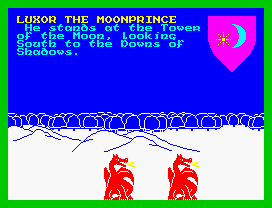
And now the bad news: Mike Singleton, creator of The Lords of Midnight, Doomdark’s Revenge, and Midwinter, has sadly died. He was in the middle of remaking The Lords of Midnight for iOS and Android, among other platforms. Chris Wild, who was doing the remake with Singleton, has announced that he will complete the remake, although it will understandably have fewer changes / improvements than intended.
It is interesting to note that the two guys mentioned above wrote, between them, my favorite 8-bit games of all time.
Beyond that… Gaming-wise, I haven’t had a lot of time for playing in the past few months. I returned to The Lord of the Rings Online (LOTRO) “for real”, and I’ve been enjoying the game a lot, although I don’t play it more than a couple of nights a week. The good part is that I’ve been doing it with a couple of friends, and we only play it when we’re together, making it more like a “normal” RPG, instead of an MMO.
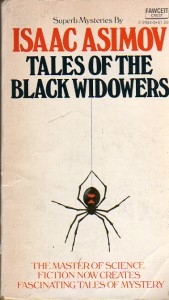
As for books, I’ve just started reading Isaac Asimov’s Black Widowers series. It’s interesting to see how Asimov was able to successfully create something that 1) was outside his “normal” thing (science fiction), and 2) has all its (short) stories following the same format, yet without making them repetitive or monotonous.
In terms of personal projects… no big news here. I’ve been working on and off on something for about a year, but it’s not something to be shared with the world. 🙂 Otherwise, I’ve recently improved my online Fantasy Name Generator, which now supports new “types”, including hobbit names, science fiction names, and even modern, English-language names. More to come soon… I hope.
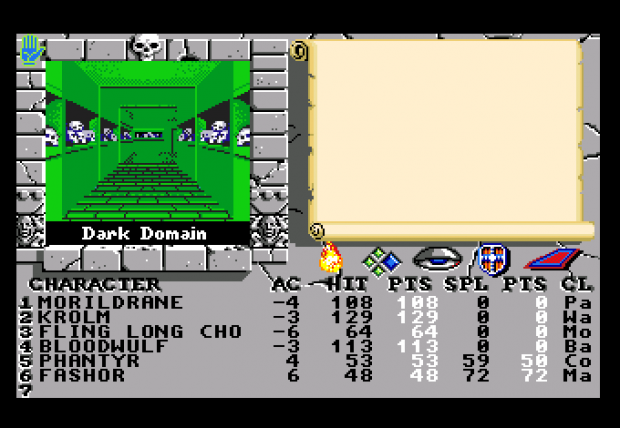
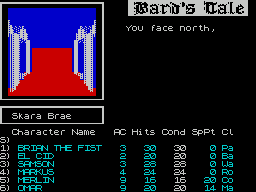
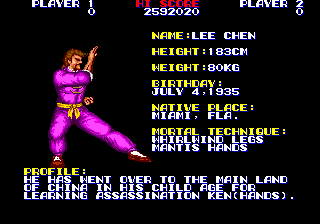
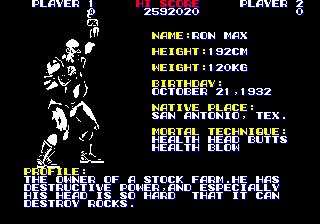
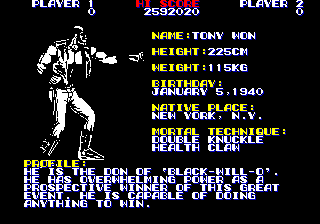
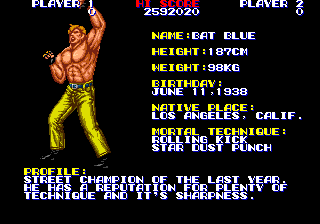
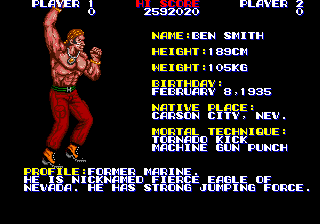
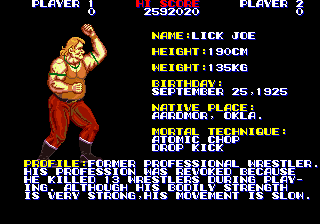
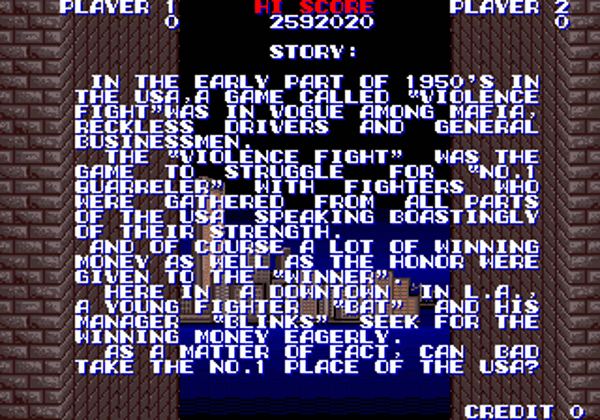
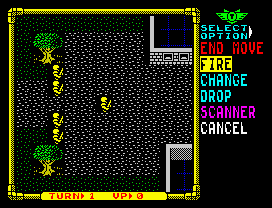
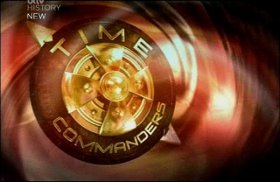
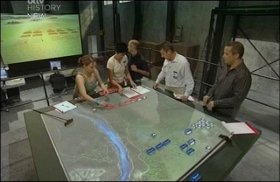 When I started this blog, one of the conscious decisions I made back then was to avoid the common “look at this cool thing I’ve just found!” posts. The reasons are several: because that tends to “date” posts (i.e. what’s novelty now will be old hat in a couple of months), because that makes a blog little more than a collection of links, and because tons of other blogs already do exactly that.
When I started this blog, one of the conscious decisions I made back then was to avoid the common “look at this cool thing I’ve just found!” posts. The reasons are several: because that tends to “date” posts (i.e. what’s novelty now will be old hat in a couple of months), because that makes a blog little more than a collection of links, and because tons of other blogs already do exactly that.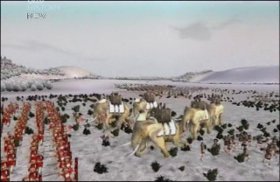 Time Commanders is a BBC2 show that ran for two seasons, between 2003 and 2005. In it, four players controlled one army (two as “generals”, two as “lieutenants / captains”) in a classical era battle, with a preliminary version of the Rome: Total War engine (which wasn’t yet released at the time, so Total War fans were actually seeing the upcoming game for the first time, at least during the beginning of the first season). Interestingly, instead of players competing against each other (either solo or in teams), all of them were on the same side; their opponent wasn’t run by an AI, but was instead controlled by (unseen) technicians, instructed to use tactics similar to the actual ones used in that battle. Incidentally, the show took care to select players without video gaming experience, which I think actually makes things more interesting: they don’t see it as a “video game” they have to beat, but as an important battle that actually happened, some 2000 years ago. Which is exactly how one should look at it.
Time Commanders is a BBC2 show that ran for two seasons, between 2003 and 2005. In it, four players controlled one army (two as “generals”, two as “lieutenants / captains”) in a classical era battle, with a preliminary version of the Rome: Total War engine (which wasn’t yet released at the time, so Total War fans were actually seeing the upcoming game for the first time, at least during the beginning of the first season). Interestingly, instead of players competing against each other (either solo or in teams), all of them were on the same side; their opponent wasn’t run by an AI, but was instead controlled by (unseen) technicians, instructed to use tactics similar to the actual ones used in that battle. Incidentally, the show took care to select players without video gaming experience, which I think actually makes things more interesting: they don’t see it as a “video game” they have to beat, but as an important battle that actually happened, some 2000 years ago. Which is exactly how one should look at it.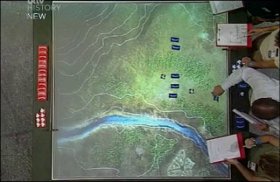 Before the actual battle, there were mission briefings (shown, again, using the R:TW engine) in which both the team and the audience were told about the historical background for the battle, the generals and forces involved, what was at stake, and which key troops both sides had available. The lieutenants / captains were also responsible for the initial scouting of enemy forces and positions, and for relaying that information to the generals.
Before the actual battle, there were mission briefings (shown, again, using the R:TW engine) in which both the team and the audience were told about the historical background for the battle, the generals and forces involved, what was at stake, and which key troops both sides had available. The lieutenants / captains were also responsible for the initial scouting of enemy forces and positions, and for relaying that information to the generals.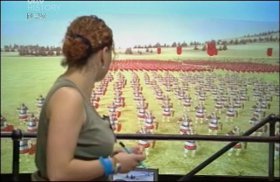 Meanwhile, two actual historians and/or military instructors (one permanent, the other one rotating between several people from episode to episode) gave more insight on the battle, and commented on the team’s tactics, outside the hearing range of the players. Only after the battle ended would they tell the players what they did rightly and wrongly, and how the battle actually went, historically. Note also that quite often the team would lose the battle, and lose spectacularly; in a way, watching how much some of the players could “blow it” was one of the series’ most entertaining aspects. 🙂
Meanwhile, two actual historians and/or military instructors (one permanent, the other one rotating between several people from episode to episode) gave more insight on the battle, and commented on the team’s tactics, outside the hearing range of the players. Only after the battle ended would they tell the players what they did rightly and wrongly, and how the battle actually went, historically. Note also that quite often the team would lose the battle, and lose spectacularly; in a way, watching how much some of the players could “blow it” was one of the series’ most entertaining aspects. 🙂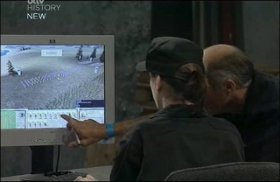 In short, this show — sadly cancelled after only two seasons — combines four things I love: history, video games, strategy, and British humor. What more could anyone want? 🙂 The episodes don’t seem to be available on DVD or Blu-Ray, unfortunately, but most of them, if not all, are currently on YouTube (just search for “time commanders“), and, of course, if you’re inventive, there are always other places to look for them. I’d still buy the series on DVD, if it were ever released, just to have it in better quality.
In short, this show — sadly cancelled after only two seasons — combines four things I love: history, video games, strategy, and British humor. What more could anyone want? 🙂 The episodes don’t seem to be available on DVD or Blu-Ray, unfortunately, but most of them, if not all, are currently on YouTube (just search for “time commanders“), and, of course, if you’re inventive, there are always other places to look for them. I’d still buy the series on DVD, if it were ever released, just to have it in better quality.